Bruxism and TMJ Pain
Bruxism and TMJ Dysfunction (TMD)
What is it and can it be treated?
Some people grind their teeth and clench their jaw muscles during their sleep (or even during the day, subconsciously). This is called bruxism and is an involuntary habit. Whilst we do not completely understand at present why some people brux their teeth and some people don’t, it is thought that if you are one of these people, it will be a lifelong habit. You may go through phases where you brux more often and phases where you brux less.
It has been suggested that this may be linked to stress, but because individuals are often not even aware of their habit, over the years the gradual damage to the teeth can amount to a serious situation. Fractures or cracks in the teeth can develop, sometimes along with pain in the jaw joints or muscles in the face. Whilst bruxism cannot be cured, it can certainly be treated, usually with occlusal splint therapy and sometimes in combination with botulinum toxin injections.
Treating bruxism can ultimately mean the difference between needing to have a lot of complex dentistry to repair damaged teeth or possibly even needing an extraction due to severe fractures, versus keeping teeth for life.
- 07 3426 5777
Bruxism and TMJ Pain FAQs
Below are some of the frequently asked questions we receive regarding bruxism and TMJ pain at Medland Dental.
If you have any other questions please contact our friendly team.
Some people grind their teeth and clench their jaw muscles during their sleep. This is called bruxism and is an involuntary habit. Whilst we do not completely understand at present why some people brux their teeth and some people don’t, it is thought that if you are one of these people it will be a lifelong habit, but you may go through phases where you may brux more often or more severely than others. It has been suggested that this may be linked to stress. Bruxism is a very common occurrence, and often individuals are not even aware of their habit as it commonly occurs during sleep. However, over the years the gradual wear of the teeth can amount to a serious situation.
As bruxism causes the upper and lower teeth to wear against each other it leads to gradual shortening and chipping of the biting surfaces of your back teeth and the edges of your front teeth. This is a process called attrition and can cause sensitivity, fractures and affect the appearance of your teeth. The pressure of the upper and lower teeth can also lead to a process called “abfraction”. Abfraction is where the enamel adjacent to your gums “flakes away” due to the pressure and flexing forces placed on your teeth when grinding, and causes notches that may be shallow and or sometimes very deep forming along your gumline. For a long time these notches were thought to be caused by over zealous tooth brushing, however, we now know that most of these are caused by bruxism. These notches can become very sensitive to cold, acids and sweet or if inadequately cleaned, decay can occur.
An occlusal splint is a slim hard acrylic guard fitted to the upper jaw and covering the biting surfaces of your upper teeth. It is designed to be worn at night. An occlusal splint will not stop you from grinding or clenching. It does however, guide the jaw into a neutral position which relieves some of the pressure on the jaw joint and very effectively protects your teeth against the destructive forces of bruxism.
The purpose of an occlusal splint is to absorb the destructive forces of bruxism and to provide something to wear down other than your teeth. As such your splint will wear down, chip and may eventually break after years of grinding on it. When this occurs, your splint will need to be replaced.
In cases of severe bruxism in addition to an occlusal splint to protect your teeth, treatment by a physiotherapist may be necessary to address any muscular pain and to provide exercises to strengthen and protect your jaw joint. Botulinum toxin injections may also be used as part of an overall management plan for your bruxism and associated pain.
Each of our Dentists are highly trained, skilled clinicians who prioritise the health and well-being of our patients.
Staying at the forefront of Brisbane’s dental industry, we are committed to utilising the latest technology and techniques to ensure that our patients can be proud of their healthy, beautiful smile.
If you have concerns about your smile or dental health and would like to learn more about treatment options that are available to you, please contact us on 07 3426 5777 or fill out the contact form and we’ll do everything we can to help.
Our welcoming and stylish dental practice is located at 66 Lambton St, Annerley, Brisbane QLD, Australia.
Providing a central and accessible location catering to patients Brisbane-wide.
Our staff are passionate about ensuring every patient leaves Medland with a smile, and with full confidence they are receiving the best dental care in Brisbane.
On-site laboratory
Care for anxious patients
Experienced Practitioners
60+ years history
#iprefermedland Read more about the Medland philosophy.


